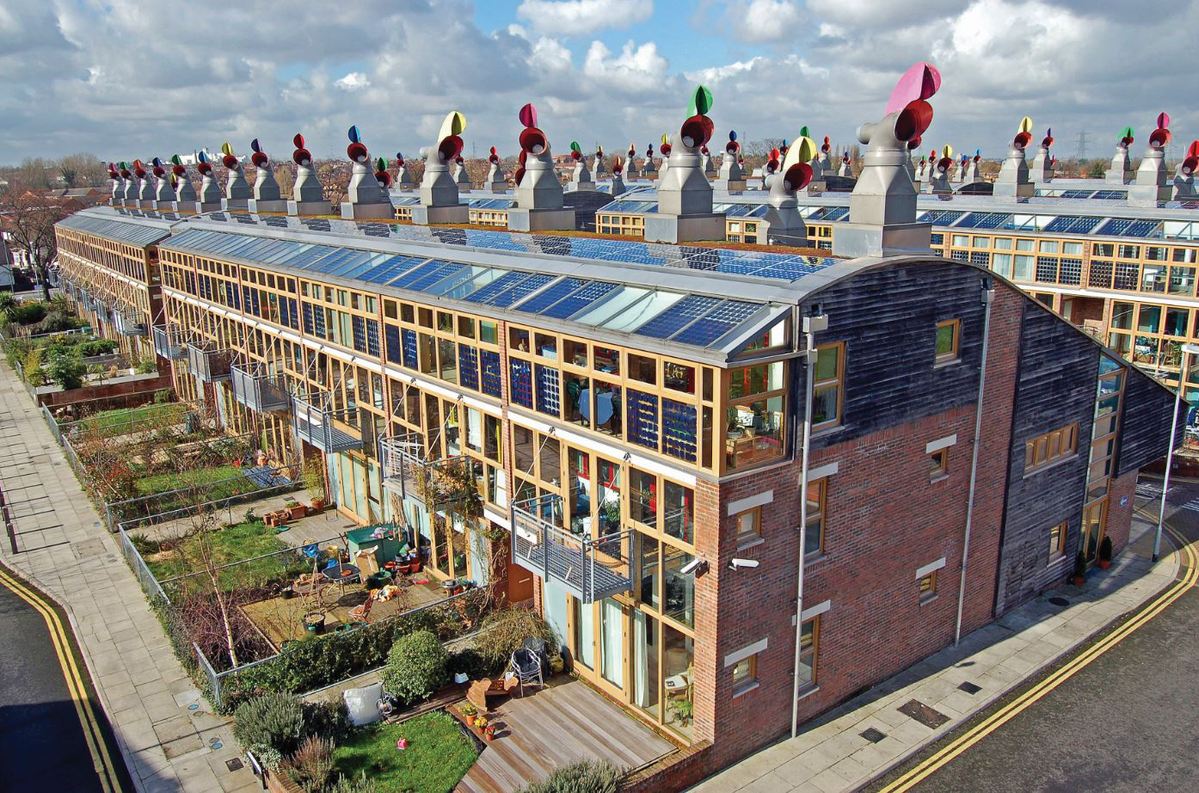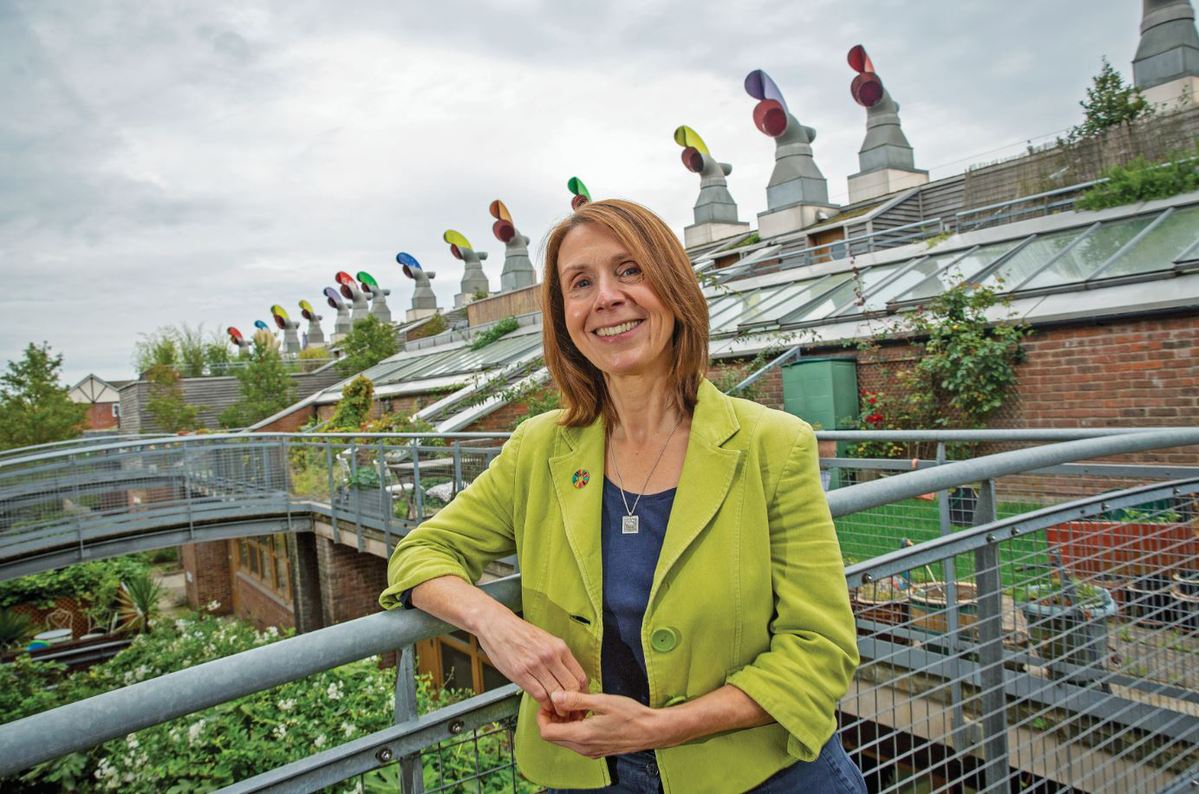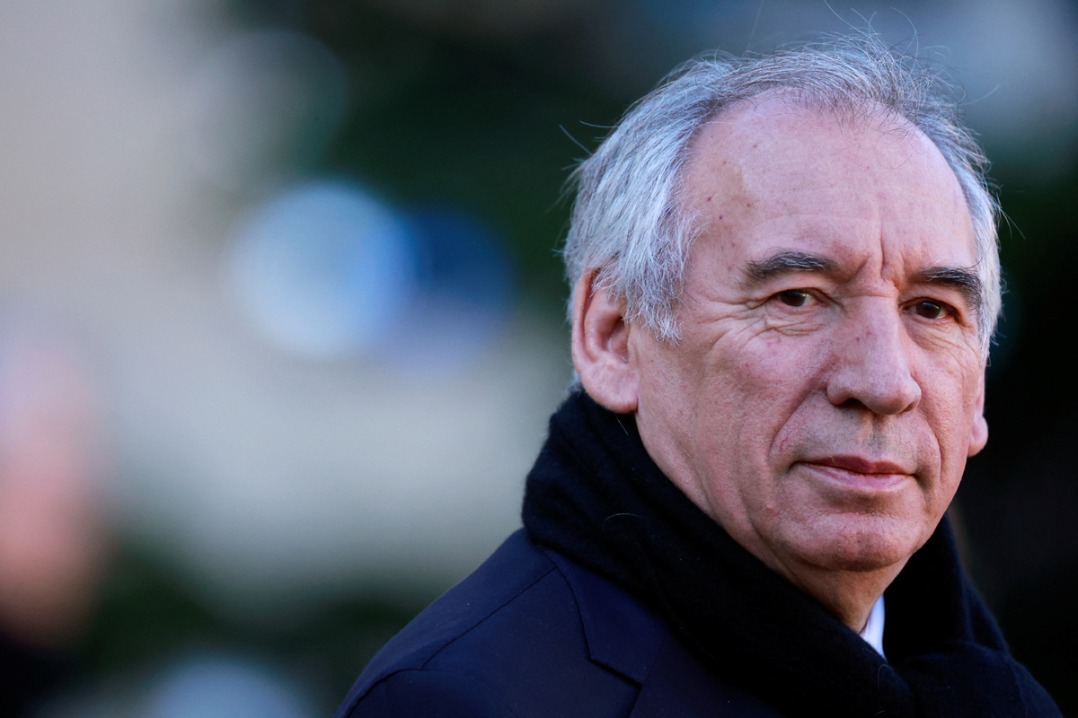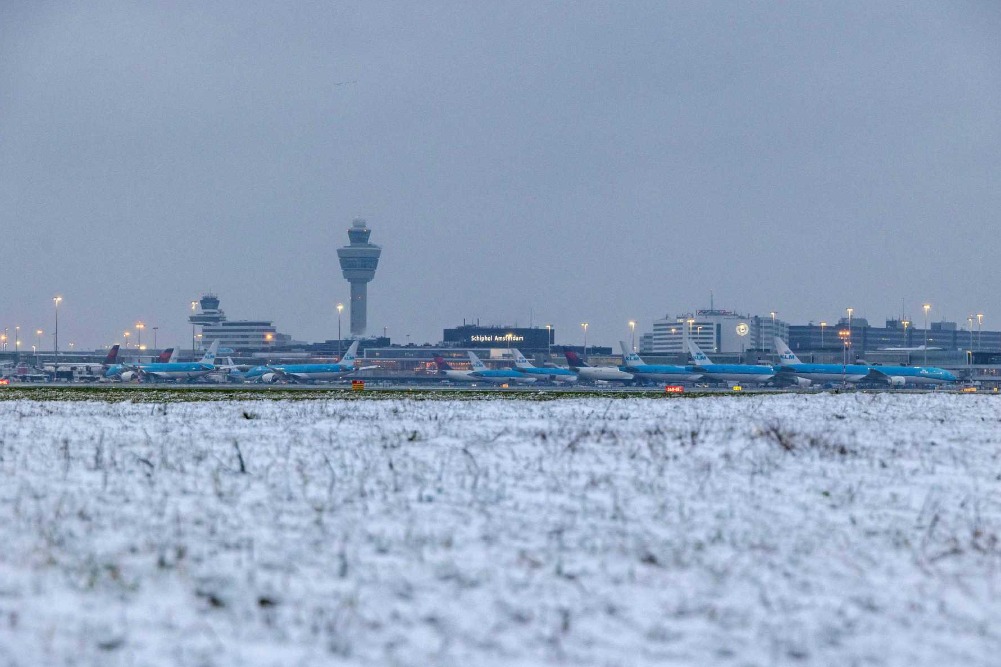Sustainable living offers a new way forward


As world leaders gather in Glasgow for the COP26 climate change summit, it is remarkable to think that had it begun on its original scheduled date — Nov 9, 2020 — an event that could shape the future of the planet would have been battling the bitter fall-out of the United States presidential election for the headlines.
The year's delay caused by the novel coronavirus pandemic means the event takes place against a very different backdrop and in a different-looking world. But it is still one where the issues of carbon emissions and global warming are as crucial as ever, so as far as one of the key players in the United Kingdom's sustainable living movement is concerned, this delay should be treated as an opportunity.
Sue Riddlestone is chief executive of BioRegional, a South London-based social enterprise, which advises businesses and politicians on sustainable living, and has exported its One Planet Living philosophy to five continents, building eco-communities around the world, including in China.
"My hopes for COP26 are high — there is still everything to play for," she told China Daily.
"What we need is for governments to come out with detailed plans for how they're going to achieve their nationally-determined contributions. Some governments have rowed back on their pledges, or have no plan, or in the case of our own government, there are lots of statements of intent but no real policy. They say they'll commit to net-zero by 2050 but we need to halve carbon emissions by 2030, so we can't spend time making plans, the most urgent thing is policy."
The thought process behind creating the sustainable living community, combining residential and business properties, at BioRegional's headquarters, known as BedZed, became so popular that the organization codified it into a philosophy known as One Planet Living, freely available for anyone anywhere to use, and to adapt to local conditions. So far, it has been put into action in countries including the United States, Tanzania, Finland, Australia and China.
"If everyone lived a comfortable middle-class lifestyle, we'd need three planets to support it, so One Planet Living is a set of 10 principles whereby people can think about how they live, what they need, what they consume, and how to do it sustainably, having a happy, healthy life with space for nature," she explained.

Its principles are health and happiness, equity and local economy, culture and community, land and nature, sustainable water, local sustainable food, travel and transport, materials and products, zero waste, and zero carbon energy. Exactly how these are put into place depends upon the location.
"The idea is you make a plan with your development, or your company's products (the system has also been employed by many leading UK retail chains, and the designers of the London 2012 Olympic park), based on local circumstances," she explained. "It's holistic but allows room for creativity."
BioRegional's presence in China is at Jinshan, a mixed-use development on the outskirts of Guangzhou.
"I'd wanted to work in China for a long time, as it has 20 percent of the world's population," Riddlestone said, adding that the country, at the same time, had a very large proportion of the world's construction.
"We worked together with China Merchant Real Estate and employed a local civil engineer who worked on the project building 6,000 homes, which looks like BedZed.
"Designing it, they thought about traditional approaches and put in lots of local touches, using things like cutout decorative ventilation, because there, the heating issue is how to stay cool, not warm.
"We often get visitors from China, and we'd love to offer our framework to companies in China. Of course there are cultural differences, but if people in China want to learn from us and interpret us in their own way, we're very happy to pass on what we know."
Another example of Bioregional's work that might catch the eye of Chinese developers is its eco-town development of Bicester in Oxfordshire, a destination that has long been hugely popular with Chinese visitors for, ironically, its shopping opportunities.
Bioregional is not working alone — it is part of the global Catalyst 2030 network, bringing together more than one thousand like-minded organizations, working in 197 countries, including China, promoting sustainable development.
Catalyst 2030 was launched in January 2020, before the pandemic, and if there are positives to have emerged from the COVID-19 catastrophe, Riddlestone said one of them is a greater appreciation of the sustainable living message.
"Nobody gets up in the morning and thinks 'I must go out and destroy the planet and contribute to global warming', it's just how the world is set up," she said.
"When your world changes, as has happened now, it's a chance to re-evaluate. Things such as nature, the environment and community have emerged from the pandemic as important. I just hope people don't forget them too quickly."
Having raised a family in BedZed and still living and working there, Riddlestone lives the sustainable living lifestyle every day.
"People have struggled financially during the pandemic but that's when things like sharing resources, as we do at BedZed, prove their worth," she added.
"People worry about a world where we're not continually growing, or having more stuff, but there's a lot you can achieve by sustainable behavior. If there's one thing BioRegional is all about, it's how to live sustainable, happy healthy lives within the limits of the planet. It's working for me, I wish it for everybody else."

































